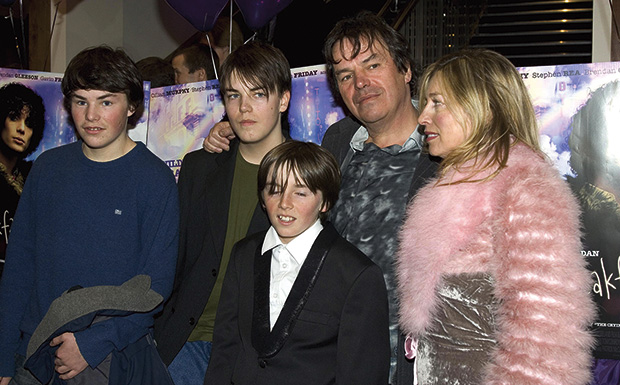I was brought up in a middle-class suburb outside Dublin. It’s a lovely city but it was weird. Very Catholic, very priest-focused. I stopped going to Mass when I was 12.
My family were fine about it, there was no big crisis. I used to be an altar boy, which was quite a sweet thing to be, but I just dropped out. It just went from me, the whole religious world. Maybe it was sublimated by my imagination and preferring other stories. I hated football and all those boyish pursuits, and I didn’t do well at school. But I was happy in my world of books and music.
The opportunities for work in Dublin then, outside the civil service or working in a bus depot, were limited. I went off to London for a few years, worked on construction sites, things like that.
I was homeless for a while. These were the days before there was any Big Issue to sell. I don’t think people fully understand homelessness. The first thing that hits you when you’re on the streets is the shame. You’re filthy. And you become literally invisible. People just don’t see you. You become very aware of being excluded from the visible, freshly washed world. It’s the strangest experience. And because you’re so ashamed you don’t want to call anyone. The solution for me would have been to call my family but I was so full of shame I didn’t want to do that.

I got married young, and by the time I was 24 I had two young kids. I had a job in a railway depot. Then I went on the dole for a long time. I was a house husband, while my wife was a teacher. I was looking after the kids at home – not very well I might add. Though I was happy, I enjoyed that a lot. I never thought I’d have kids, it was kind of magical. I’d be at home scribbling away in this little cottage then I’d cycle to school to pick them up. That suited me quite well. But eventually I got sick of going into the labour exchange in Gardiner Street. So I started to write.
When I went to college I set up a drama group with a friend of mine, Jim Sheridan (who went on to direct My Left Foot, In the Name of the Father, In America). Then with my money from the dole and an arts council grant I set up a small publishing firm called the Irish Writers’ Co-operative and we began to publish books by friends of ours who couldn’t get published anywhere else. We all fully accepted that by writing we were choosing a life of poverty. But the firm became quite successful. By the mid-Seventies Ireland was starting to loosen up, become something quite different. Traditionally, Irish writers always had to go away. But around the mid-Seventies that changed – we decided to stay and make the culture work for us.










